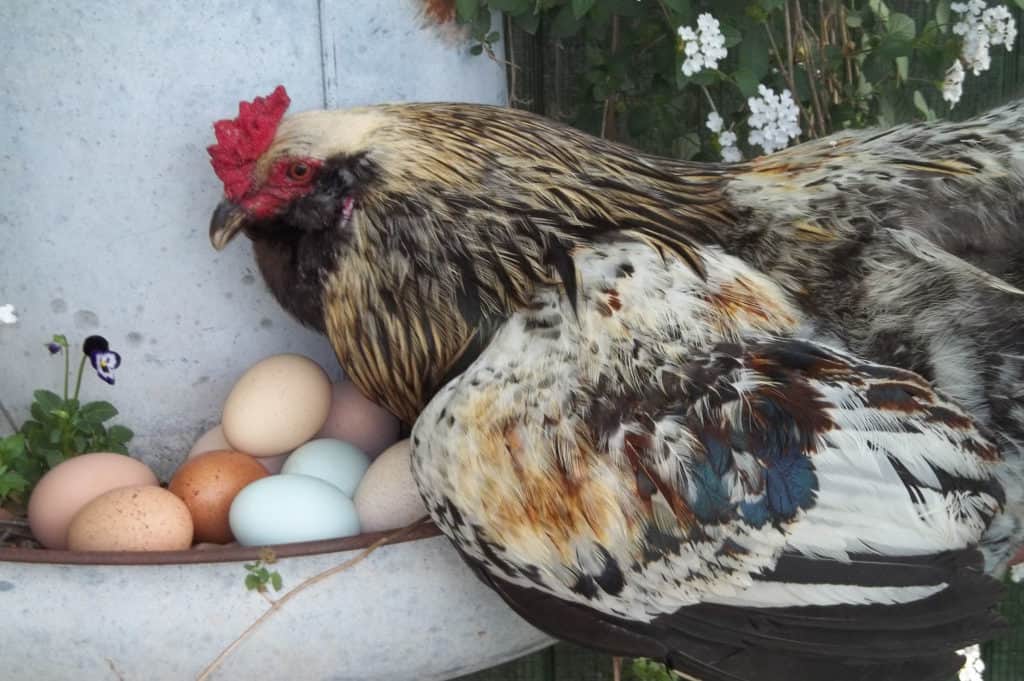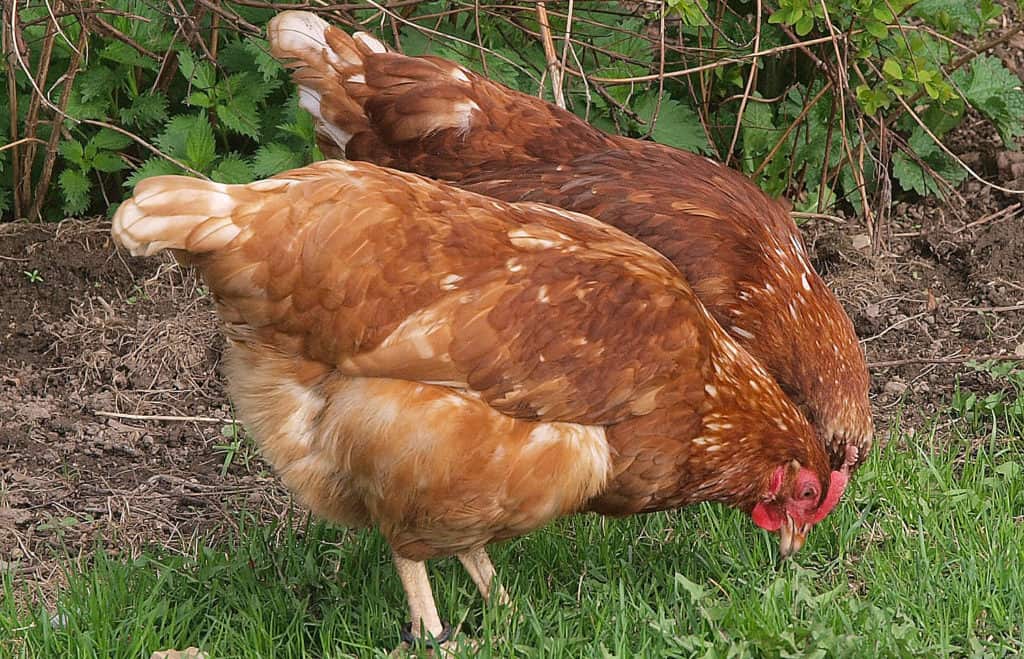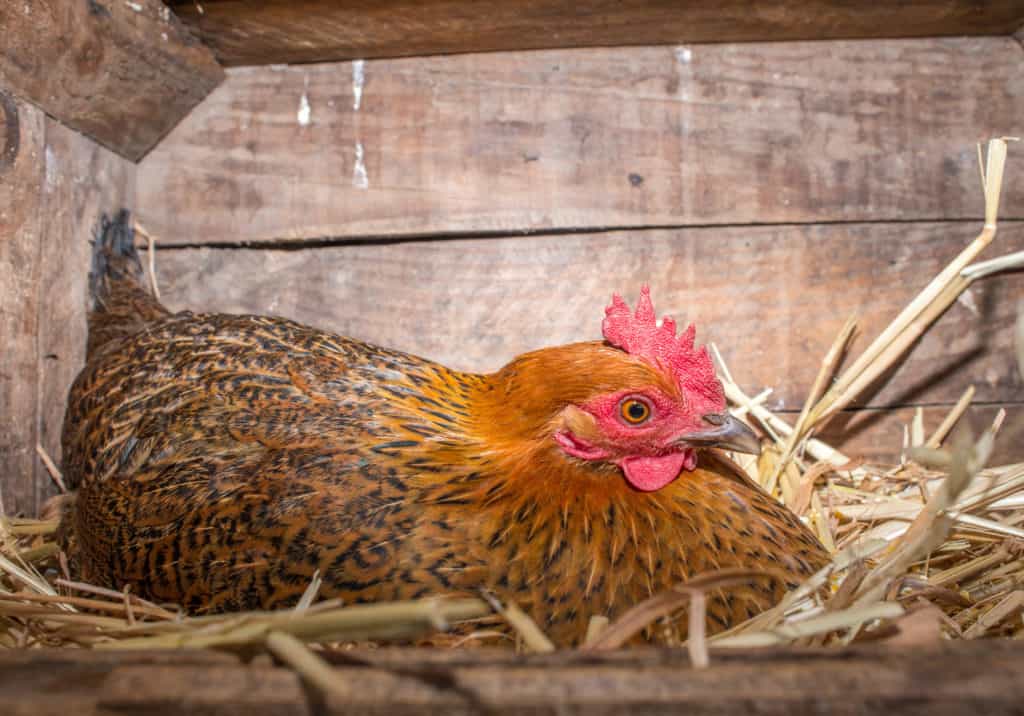Do Chickens Need A Rooster To Lay Eggs? Understanding The Basics Of Egg Production
Many people wonder whether chickens need a rooster to lay eggs, especially when starting their backyard flock or learning about poultry farming. The answer to this question lies in understanding the biological processes of egg-laying and reproduction in chickens. While roosters play a vital role in fertilizing eggs, they are not necessary for hens to produce eggs regularly.
Chickens are among the most common domesticated animals, and their egg-laying capabilities have made them an essential part of the global food supply. However, there are misconceptions about the role of roosters in egg production. This article aims to clarify this topic and provide a comprehensive understanding of the process.
Whether you're a backyard chicken enthusiast or someone interested in sustainable farming, learning about the egg-laying process and the role of roosters can help you make informed decisions. Let's dive into the details and explore the fascinating world of chicken egg production.
Read also:Cha Eunwoo Engaged A Comprehensive Look At The Heartwarming Romance
Table of Contents
- The Biological Process of Egg-Laying
- The Role of a Rooster in Egg Production
- Types of Eggs: Fertilized vs. Unfertilized
- Factors Affecting Egg-Laying
- Benefits of Having a Rooster
- Challenges of Keeping a Rooster
- Choosing the Right Chicken Breed for Egg Production
- Nutrition and Egg-Laying
- Health Tips for Maximizing Egg Production
- Common Questions About Chicken Egg-Laying
The Biological Process of Egg-Laying
Chickens are natural egg-layers, and their ability to produce eggs is a biological process that occurs regardless of the presence of a rooster. Female chickens, or hens, are equipped with ovaries that produce eggs on a regular cycle. Typically, a hen will lay an egg every 24 to 26 hours, depending on her breed, age, and health.
Hens begin laying eggs when they reach sexual maturity, which is usually around 18 to 22 weeks of age. The egg-laying process starts in the ovary, where the yolk is formed. From there, it moves to the oviduct, where the egg white, shell membranes, and shell are added. This entire process takes approximately 25 hours.
Key Stages in Egg Formation
- Ovulation: The release of the yolk from the ovary.
- Albumen Formation: The addition of egg white in the magnum section of the oviduct.
- Shell Membrane Formation: The development of the inner and outer shell membranes.
- Shell Formation: The final stage where the calcium carbonate shell is formed.
Understanding these stages is crucial for anyone interested in maximizing egg production in their flock.
The Role of a Rooster in Egg Production
While roosters are not necessary for hens to lay eggs, they do play an important role in fertilizing eggs. If you want to produce fertilized eggs for hatching, a rooster is essential. Roosters contribute sperm during mating, which fertilizes the egg if the timing aligns with the hen's ovulation cycle.
Without a rooster, hens will still lay eggs, but these eggs will be unfertilized and cannot develop into chicks. This is perfectly fine for most backyard chicken keepers who are primarily interested in egg production for consumption.
When Do You Need a Rooster?
- If you plan to hatch chicks and expand your flock.
- If you want to produce fertilized eggs for breeding purposes.
- If you want a rooster for protection and flock management.
However, if your primary goal is to collect eggs for eating, a rooster is not required.
Read also:Softball College World Series Bracket Your Ultimate Guide To The Championship
Types of Eggs: Fertilized vs. Unfertilized
Eggs can be categorized into two main types: fertilized and unfertilized. Fertilized eggs are produced when a hen mates with a rooster, and the sperm successfully fertilizes the egg during its formation. These eggs have the potential to develop into chicks if incubated under the right conditions.
Unfertilized eggs, on the other hand, are laid by hens without the involvement of a rooster. These eggs are safe to eat and are the type most commonly found in grocery stores. They do not contain any developing embryos and are nutritionally identical to fertilized eggs.
Which Type of Egg is Better?
From a nutritional standpoint, there is no significant difference between fertilized and unfertilized eggs. Both types provide the same high-quality protein, vitamins, and minerals. The choice between the two depends on your specific needs and preferences.
Factors Affecting Egg-Laying
Several factors can influence the frequency and quality of egg-laying in chickens. These factors include:
Breed
Different chicken breeds have varying egg-laying capabilities. Some breeds, such as the White Leghorn, are known for their high egg production, while others may lay fewer eggs but offer other desirable traits.
Age
Hens are most productive in their first two to three years of laying. As they age, their egg production gradually decreases.
Nutrition
A balanced diet rich in protein, calcium, and essential nutrients is crucial for optimal egg-laying. Deficiencies in any of these nutrients can lead to reduced egg production or poor-quality eggs.
Lighting
Chickens require a certain amount of daylight to maintain regular egg-laying cycles. Providing supplemental lighting during the shorter winter months can help maintain production levels.
Health
Healthy hens lay more eggs. Ensuring proper care, regular health checks, and a clean living environment can help prevent diseases that may affect egg production.
Benefits of Having a Rooster
Although roosters are not necessary for egg-laying, they offer several benefits to a flock:
- Protection: Roosters are naturally protective of their hens and will defend them from predators.
- Flock Structure: Roosters help maintain order within the flock by establishing a pecking order.
- Breeding: As mentioned earlier, roosters are essential for producing fertilized eggs.
However, it's important to note that not all situations are suitable for keeping a rooster, as discussed in the next section.
Challenges of Keeping a Rooster
While roosters offer benefits, they also come with challenges:
- Noise: Roosters are known for their loud crowing, which can be disruptive, especially in urban or suburban areas.
- Aggression: Some roosters can become aggressive toward humans or other animals, making them difficult to manage.
- Space Requirements: Roosters require more space than hens to prevent overcrowding and potential conflicts within the flock.
Before deciding to keep a rooster, consider these factors and ensure that your living situation can accommodate one.
Choosing the Right Chicken Breed for Egg Production
Selecting the right chicken breed is crucial for maximizing egg production. Some popular breeds known for their high egg-laying capabilities include:
White Leghorn
The White Leghorn is one of the most prolific egg-laying breeds, capable of producing up to 300 eggs per year. They are small, efficient, and well-suited for commercial egg production.
Rhode Island Red
Rhode Island Reds are hardy, dual-purpose birds that lay large brown eggs. They are known for their friendly temperament and adaptability to various climates.
Ameraucana
Ameraucanas are prized for their unique blue eggs. While they may not lay as frequently as White Leghorns, their eggs are highly sought after for their distinctive color.
Choosing a breed that aligns with your goals and environment can significantly impact your flock's success.
Nutrition and Egg-Laying
Proper nutrition is essential for maintaining healthy egg production. Chickens require a balanced diet that includes:
- Protein: Essential for egg formation and overall health.
- Calcium: Necessary for strong eggshells.
- Vitamins and Minerals: Important for overall health and egg quality.
Feeding your chickens a high-quality layer feed and providing access to fresh water and grit can help ensure optimal egg-laying performance.
Health Tips for Maximizing Egg Production
To keep your hens healthy and productive, follow these tips:
- Provide a clean and comfortable living environment.
- Regularly check for signs of illness or parasites.
- Ensure proper ventilation in the coop to prevent respiratory issues.
- Offer a balanced diet and fresh water daily.
By prioritizing the health and well-being of your flock, you can maximize egg production and enjoy fresh, high-quality eggs.
Common Questions About Chicken Egg-Laying
Here are some frequently asked questions about chicken egg-laying:
Do Chickens Lay Eggs Every Day?
Not all chickens lay eggs every day. The frequency of egg-laying depends on factors such as breed, age, and health. On average, a healthy hen can lay one egg every 24 to 26 hours during her peak laying period.
Can Chickens Lay Eggs Without a Coop?
While chickens can lay eggs without a coop, providing a safe and comfortable nesting area is important for their well-being and egg quality. A coop helps protect hens from predators and harsh weather conditions.
How Long Do Chickens Lay Eggs?
Hens are most productive in their first two to three years of laying. After that, their egg production gradually decreases, but they may continue to lay eggs for several more years.
Kesimpulan
In conclusion, chickens do not need a rooster to lay eggs. Hens will naturally produce eggs on a regular cycle, regardless of the presence of a rooster. However, if you want to produce fertilized eggs for hatching, a rooster is necessary. Understanding the biological process of egg-laying, the role of roosters, and the factors affecting egg production can help you make informed decisions about your flock.
We encourage you to share this article with others who may find it helpful. If you have any questions or comments, please feel free to leave them below. Additionally, explore our other articles on poultry farming and sustainable living for more valuable insights.
References:
- University of Florida IFAS Extension - Egg Production in Backyard Chicken Flocks
- Purdue University - Poultry Production Guide
- USDA - Nutrition and Egg Quality


